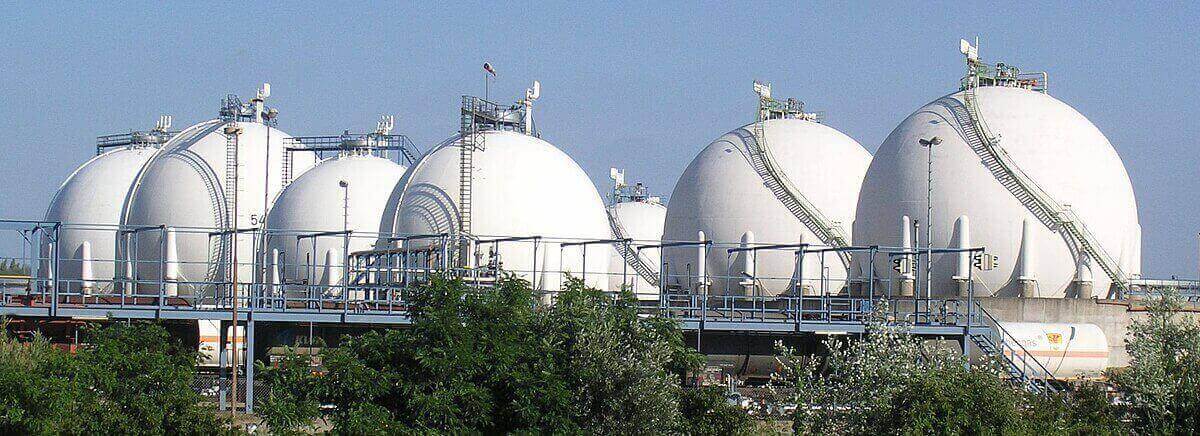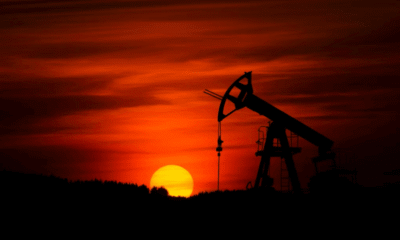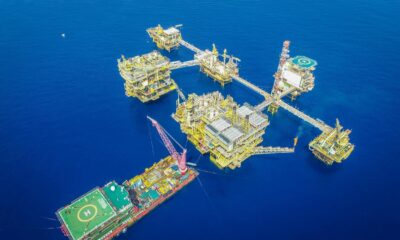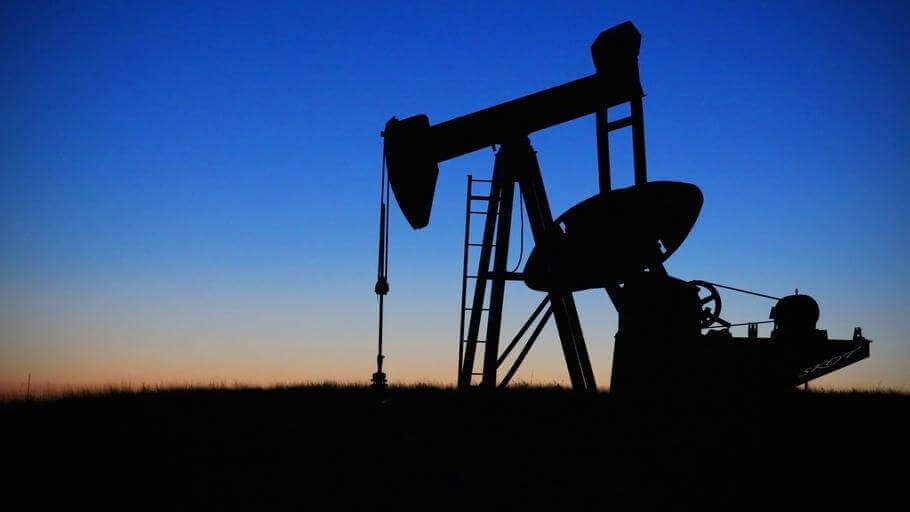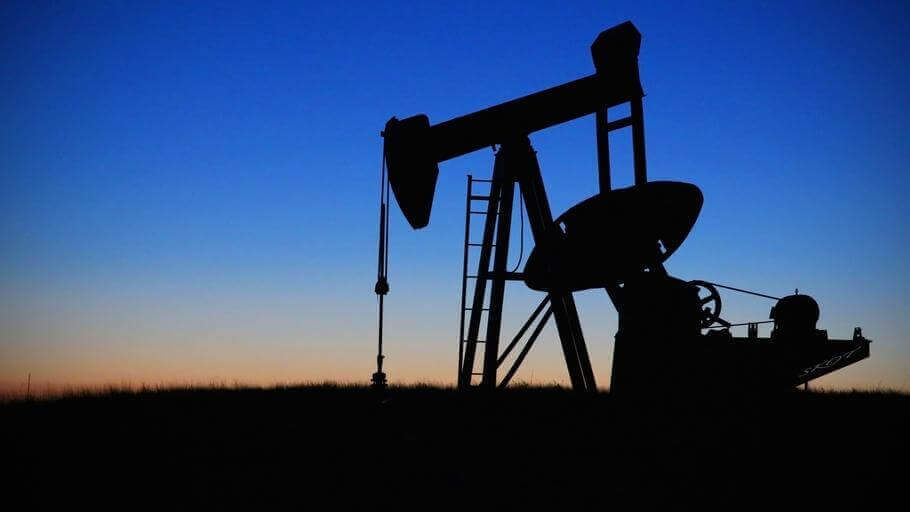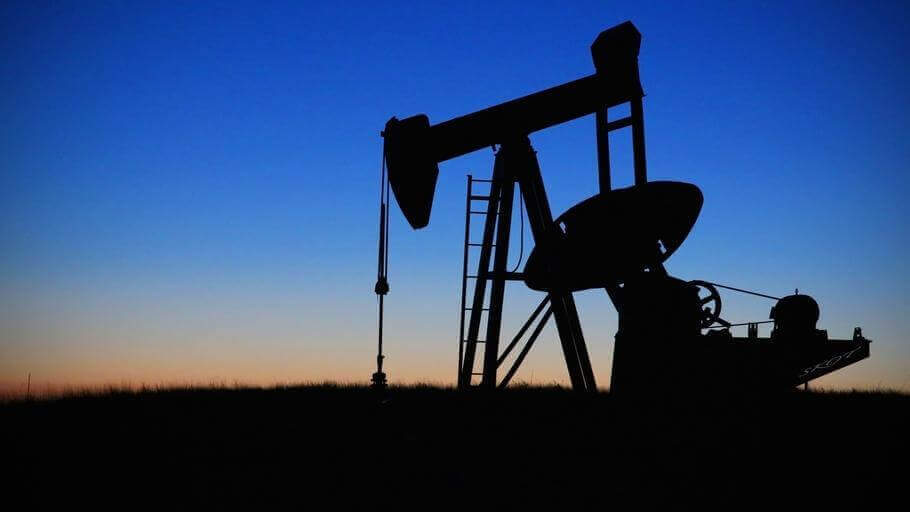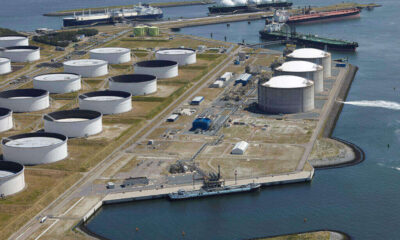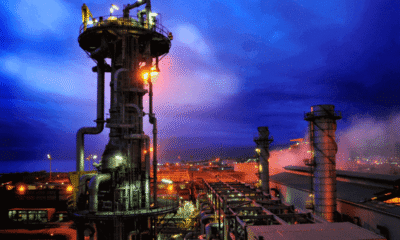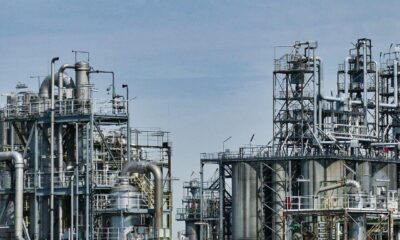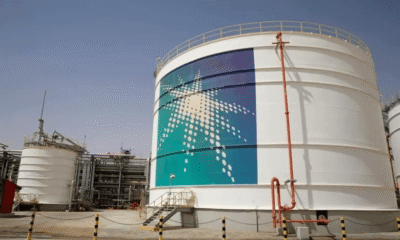The Nigerian government, on April 15, announced plans to create strategic petroleum reserves. Reuters cited Farouk Ahmed, CEO of the Nigerian Midstream and Downstream Petroleum Regulatory Authority (NMDPRA).
Strategic petroleum reserves (SPRs) are stockpiles of crude oil and products held by countries for release during supply disruptions. According to NMDPRA, Nigeria’s strategic petroleum reserves will protect the country’s economy from global supply shocks.
Nigeria’s reserves are only sufficient for about 30 days. Consequently, the federal government plans to create a more significant national strategic stockpile modelled after the US Strategic Petroleum Reserve. However, officials have not yet specified the volume.
Nigeria, Africa’s largest oil producer, often experiences fuel shortages, leading to long station lines. The Nigerian National Petroleum Company (NNPC) operates four refineries—Port Harcourt, Warri, and Kaduna.
Unfortunately, they are inefficient due to poor maintenance, outdated technology, and unsuccessful rehabilitation attempts.
Nigeria is a significant exporter of crude oil. However, it imports 90% of its refined fuel from India, Belgium, and the Netherlands.
As a result, Nigeria is vulnerable to potential supply disruptions caused by conflicts, shipping delays, accidents, or naval blockages.
How Nigeria’s Strategic Petroleum Reserves May Operate
The federal government will store millions of barrels of crude oil and refined products, including PMS, diesel, and kerosene, in secure depots.
Nigeria’s strategic petroleum reserves will be located at key sites near major oil-producing regions. Potential locations include Bayelsa, Rivers, Delta, and Lagos states to reduce transportation costs.
Coastal areas near key ports will be prioritized for seamless import and export. These major ports will ensure easy access to international markets.
To protect Nigeria from supply disruptions, the federal government will implement a three-layer protection system based on best practices.
- Short-Term Disruptions (1-30 Days)
- Scenario: Refinery shut down due to maintenance and pipeline vandalism.
- Solution: Nigeria’s Strategic Petroleum Reserve (SPR) will provide immediate backup supplies during repairs.
- Medium-Term Crises (1-6 Months)
- Scenario: Global oil prices spike from import delays and logistics issues.
- Solution: The government will slowly release Nigeria’s SPR to keep local fuel prices steady while the government seeks alternative supplies.
- Long-Term Emergencies (6+ Months)
- Scenario: War, naval blockade, sanctions, or major global economic crises
- Solution: Rationed distribution to keep essential sectors like the country’s military, healthcare, manufacturing, and transportation operational.
Why Nigeria Want to Establish Strategic Petroleum Product Reserves
The federal government wants to create strategic petroleum reserves to ease the country’s frequent fuel shortages. These shortages often lead to panic buying and long queues at fuel stations nationwide. Shortages continue to persist mainly due to NNPC’s inefficient refineries. As a solution, Nigeria’s strategic petroleum reserves will ensure that fuel is available for businesses and individuals during a time of supply issues.
As a petrostate, Nigeria depends heavily on stable oil prices, which makes it vulnerable to global geopolitical fluctuations. Geopolitical conflicts like the ongoing Red Sea crisis have disrupted oil shipments. Supply disruptions increase global oil prices, which raises domestic fuel costs since Nigeria imports over 90% of its refined fuel, including jet fuel and gasoline. Higher domestic prices contribute to inflation, particularly in food and transportation, which affects Nigerians’ purchasing power. The government can release reserves to stabilize supply and prices, reducing inflation risks.
Nigeria’s epileptic power supply means businesses depend heavily on petrol and diesel to fuel their generators to generate electricity for operations. The country will face massive fuel shortages in times of war, global pandemics, or trade disruptions. Consequently, businesses will close their operations, which would lead to severe economic crises.
If Nigeria does not have sufficient reserves, it will be forced to buy refined fuel from other countries. Unfortunately, these countries may charge the government higher prices, which would put pressure on Nigeria’s low foreign exchange reserves, which are very low relative to the country’s population. Therefore, an SPR will enable Nigeria to avoid potentially costly purchases, fostering economic stability. Pandemics, naval blockades, wars, and even natural disasters can disrupt Nigeria’s ability to import refined fuels.
Pandemics, naval blockades, wars, and even natural disasters can disrupt Nigeria’s ability to import refined fuels. Therefore, strategic petroleum reserves will ensure that Nigeria has sufficient fuel in times of crisis to support its military, respond to emergencies, and sustain food and medical supply chains nationwide.
Potential Government Agencies & Private Companies Involved in Nigeria’s Strategic Petroleum Reserves
The Petroleum Industry Act (PIA) of 2021 mandates the establishment of a national strategic reserves. This act establishes the Nigerian Midstream and Downstream Petroleum Regulatory Authority (NMDPRA) as the entity responsible for licensing and regulating storage facilities under the strategic petroleum reserves initiative.
Government Agencies
In addition to NMDPRA, other government ministries, departments, agencies and private companies will contribute to Nigeria’s strategic petroleum reserves.
Unmistakably, the Ministry of Petroleum Resources, the leading ministry in charge of Nigeria’s oil and gas policy, will be responsible for the management, maintenance, and operation of the SPR.
NNPC’s existing oil infrastructure ( pipelines and depots) makes it a key player. It would partner with private companies like Dangote Refinery and future refineries for storage, inventory restocking, and fuel releases during emergencies.
Nigeria loses billions of dollars annually due to oil theft and pipeline vandalism. Consequently, the Ministry of Defence will be crucial in physically protecting the SPR sites. In some cases, the SPR will support military fuel needs during crises or conflicts.
Nigeria’s strategic petroleum reserves will remain ineffective without funding. Therefore, the Ministry of Finance will be essential for fund allocation, budget approvals and securing loans for SPR infrastructure.
The National Assembly will play a key role in Nigeria’s Strategic Petroleum Reserve plan. The Senate and House of Representatives will be crucial for oversight and budgetary roles.
The Ministry of Environment will ensure that SPR sites adhere to strict regulations concerning air and water quality standards. Thus ensuring that SPR’s operations comply with environmental law.
Private Companies
Private companies will also operate and support Nigeria’s strategic petroleum reserves through contracts awarded by the federal government. These companies will provide storage facility maintenance, transportation, engineering, security, and logistics services.
When oil is released from Nigeria’s SPR, private companies may handle Storage, pipelines and refining:
- Aiteo Group, Matrix, Energy Sahara Group, NIPCO, Eterna, etc: provide decentralized storage facilities.
- Renaissance Africa (Trans Nigeria Pipeline), Heritage Energy (Trans Forcados Pipeline), Seplat (Qua Iboe Pipeline): Pipeline & terminal operators near SPR sites that could transport SPR oil.
- Dangote, BUA, OPAC, Azikel, Niger Delta: Independent refiners that process SPR oil.
The government may occasionally decide to sell SPR oil to private companies via competitive auctions. As such, international commodity trading companies such as Vitol, Trafigura, and Glencore may participate in Nigeria’s SPR crude sales.
Companies like China Civil Engineering, Arab Contractors Nigeria, Julius Berger, and Setraco may construct storage depots and offices at SPR sites.
Top engineering, procurement, construction, and commissioning service providers like Nestoil and Kaztech could be involved, especially in pipeline construction.
Private security companies will also be needed to safeguard SPR sites from theft and sabotage.
The government would also have to contract cyber security companies to guard against digital threats and install inventory management software.
Global Strategic Petroleum Reserves
Nigeria’s planned strategic petroleum reserves will follow models major economies use to stabilize local prices, influence global markets, and protect domestic industries. Therefore, creating an SPR aligns Nigeria with these global energy security measures.
| SPR Size (Million Barrels) | | | | |
| | Salt caverns Underground salt caverns in Texas & Louisiana | Emergency supply during geopolitical or climate crises | | World’s Largest SPR Released during major supply disruptions ( Gulf War, Hurricane Katrina 2005, Libya Crisis 2011, 2020 Covid-19 Pandemic, 2022 price stabilization due to the Russia-Ukraine war |
| 550 - 650 Confidential, China does not publish its volume | Zhoushan, Qingdao, Dalian, Zhenhai, Tianjin, Dushanzi, Dongying, Weifang | Economic Security: Mitigates against possible US sanctions & Middle East supply cuts | National Development and Reform Commission | Combines both state and commercial reserves
|
| | Tomakomai, Mutsu-Ogawara, Kuji, Akita, Fukui, Kikuma, Shirashima, Kamigotou, Kushikino, Shibushi, Kagoshima | Legal mandate Japan's law mandates 90 days of oil consumption coverage | Japan Oil, Gas and Metals National Corporation | Combination of state-controlled and private reserves |
| |
Ulsan, Geoje, Yeosu, Seosan
| Potential war with North Korea and energy security | Korea National Oil Corporation | Combination of state-controlled and private reserves |
| 39 (Phase 1) Targeting 90 | Visakhapatnam, Mangalore, Padur | Short-term supply shocks, pandemic buffer | Indian Strategic Petroleum Reserves Ltd | Accessed during in 2022 due to the Russia-Ukraine war to stabilize prices
|
| | | Mitigate fuel supply shocks, ensure national energy security | Nigerian Midstream & Downstream Petroleum Regulatory Authority (NMDPRA) | |
Potential Takeaway for Nigeria Regarding global strategic petroleum reserves include:
- US SPR: Underground storage lowers costs & security risks.
- China SPR: Public-private partnerships can reduce the funding burden.
- India SPR: Gradual expansion is more sustainable.
- Japan SPR: Legal frameworks ensure long-term commitment.
Key Challenges Nigeria Must Overcome to Build Strategic Petroleum Reserves
Nigeria’s plan for strategic petroleum reserves is a critical step toward energy security. Still, significant economic, logistical, and political hurdles stand in the way. Below are the key challenges and potential solutions.
| Challenge / Risk Level |
Problems |
Likely Solution |
| Funding Issues (Critical) |
- Building vast storage tanks, pipelines, and other infrastructure worth billions of dollars of investment.
- Nigeria’s budget constraints and high debt burden make investment difficult.
|
- Public-Private Partnerships (Involve Dangote, NNPC, and other private key stakeholders in the industry.
- Loans: World Bank, AIIB, AfDB, or OPEC financing.
- Phased Development: Start with a 30-day reserve, then expand to 60, 90 & 180 days.
|
| Storage Vulnerabilities (High) |
- Nigeria does not have large-scale underground salt caverns (like the US uses).
- Most storage facilities would need above-ground tanks, which are expensive and vulnerable to vandalism.
|
- Leverage marketing companies & refineries storage units (MRS Oil, Oando, Sahara Group, Dangote Refinery)
- Prioritize critical locations: Bonny Island, Lagos Ports, and oil export terminals.
|
| Corruption (High) |
- Corruption issues in the industry (Fuel subsidy).
- Possible interference in contract awards and reserve releases (e.g. preferring allies during shortages).
|
- Independent SPR Governing Board.
- Strict penalties for violating SPR regulations.
|
| Fuel Degradation and Imports (medium and high, respectively) |
- Stored petrol/diesel/Jet Fuel tends to degrade over time.
- Expensive rotation & refining to keep it usable.
- Nigeria imports 90% of its petrol despite crude oil exports.
|
- Adopt the FIFO System: First-In-First-Out to cycle stocks
- Blend with fresh fuel before distribution
- Invest in stabilizer additives to extend the shelf life of refined products / crude oil.
|
| Oil Theft & Pipeline Vandalism Risks (High) |
- Theft and Vandalism: Nigeria loses 200,000+ barrels/day to oil theft and pipeline vandalism.
- Militant Attacks: Above-ground tanks are easy targets for militants.
|
- Military-guarded reserves like US SPR sites.
- Drone and high-tech AI monitoring & surveillance system.
|
| No Legal Mandate (Medium) |
- No binding law in Nigeria mandating reserve levels (unlike Japan’s 200-day rule).
|
- The National Assembly should enact a law regarding Nigeria’s SPR (Nigeria SPR Act).
|

